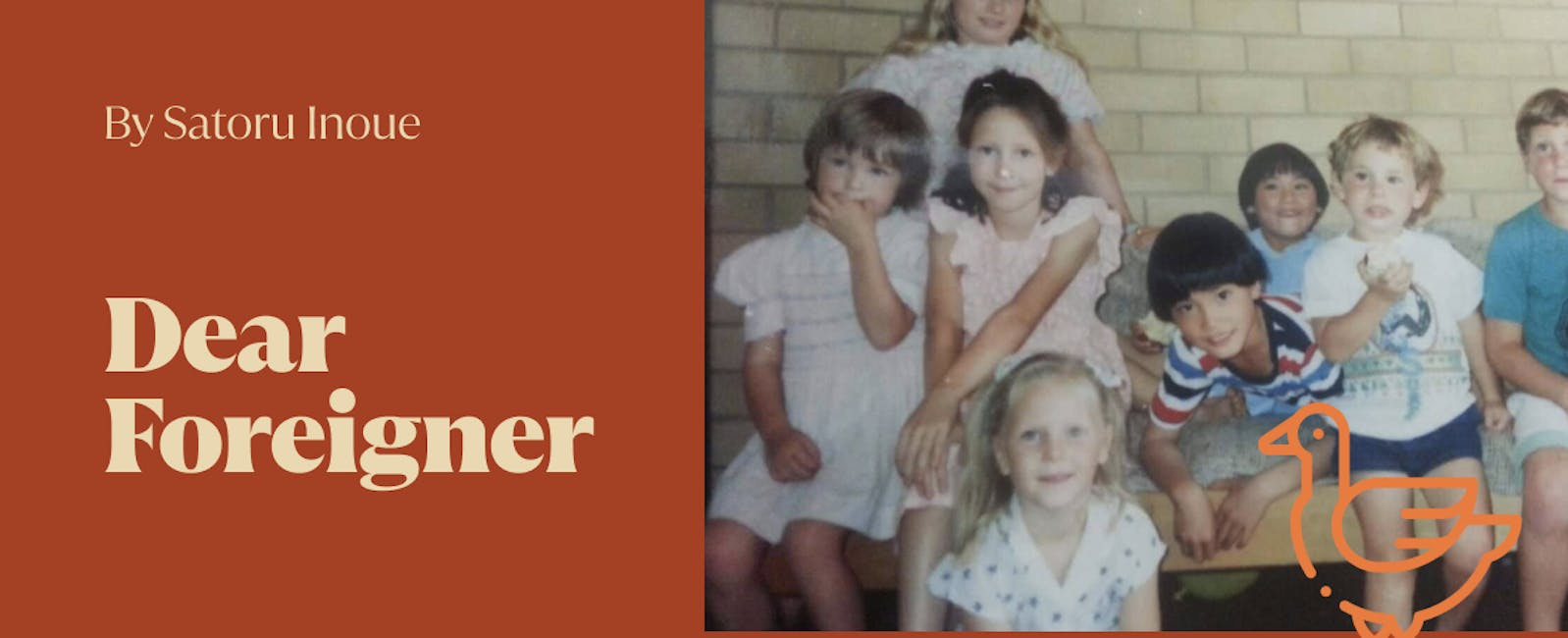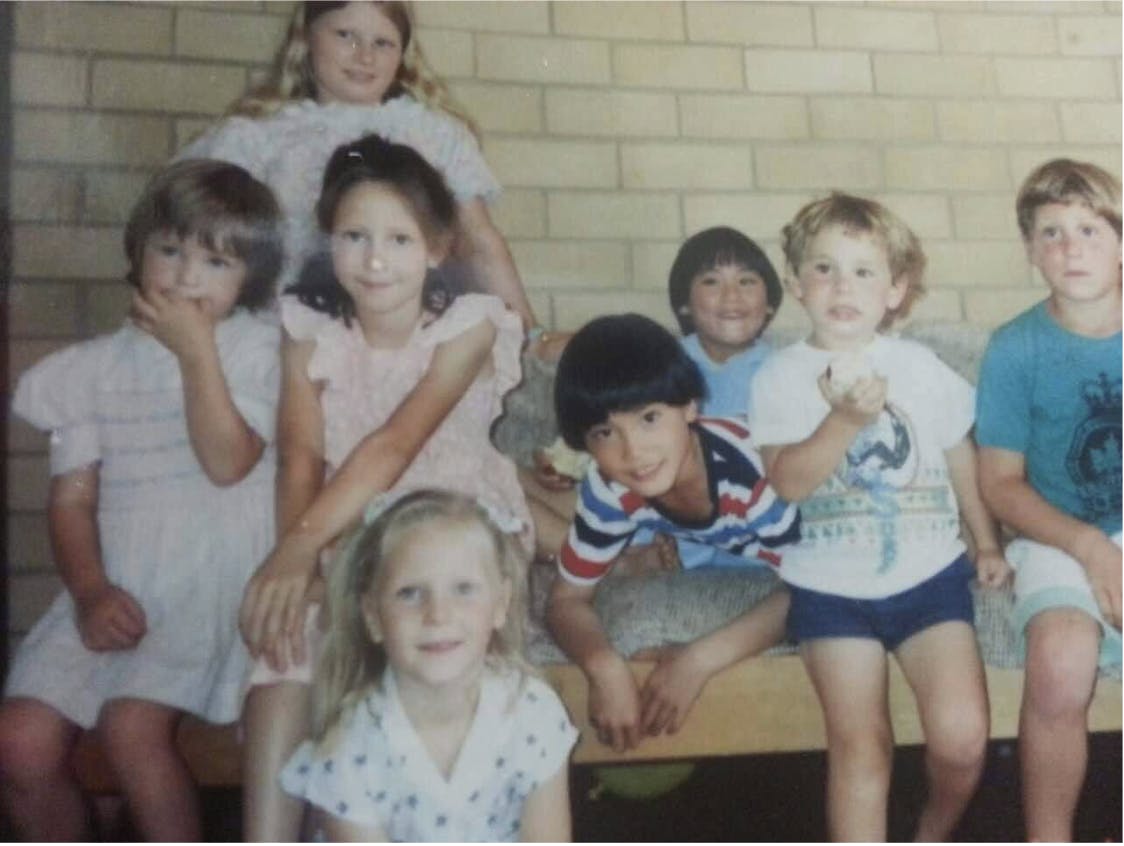
Blog: Dear Foreigner
June 22, 2023
I’ve always regretted not walking up and talking to that girl.
She was the only white girl I saw at my elementary school. My friends and I would be chatting in the school yard, and I’d occasionally see her walking straight through towards the school gate.
Many kids would turn their heads and look, or stare, at her from a distance.
This was in 1991 in Tokyo, Japan.
I can’t remember how many times I saw her from afar, maybe once, maybe a few more times. I remember thinking of talking to her as soon as I saw her seemingly lonely back. My seven-year-old mind’s instinct was telling me that she had no friends to talk to.
But I didn’t. Maybe I thought “whatever,” or maybe I didn’t want to get the wrong kind of attention from other kids by talking to someone who looked so different from the rest of us. In retrospect, it was the latter.

My sister and I, surrounded by our friends - 1989 Canberra, Australia
Race is a funny concept.
It certainly is a way to categorize people, and of course, also very often used as a tool to discriminate. It is one of the easiest ways to establish otherness in those who are different from you.
When I was five, my father was invited to the Australian National University as a guest professor. My family decided to tag along, and we lived in Canberra for one year.
There were many children around my age in the neighborhood. After the initial confusion of suddenly being in a foreign country, I eventually made good friends there.
I don’t remember distinguishing races in my head. Subconsciously, maybe—after all, studies find that even babies can categorize race and develop a racial bias.
In my simple world, cycling around the same five block radius with my buddies every day, there were some kids who were friends with me, and there were others who weren’t. They all just happened to be white.
—---------------------------------
Fast forward more than thirty years: I have lived almost half of my life outside of my motherland. Wherever I have lived or visited outside of my own country, I was always a minority in some form or manner.
I work for a medium size company in Vancouver, Canada. Vancouver is a diverse city of many races. Not a day goes by without hearing different languages as I head to the office downtown.
Over the years at this one company, I managed to join the ranks of the leadership team.
Most days, I don’t think about race at work. Occasionally, I look around and think to myself that I am one of the very few visible minorities among the leadership team.
Once in a while, I resent it.
I resent it, not because the twenty-person strong leadership team is 90%+ Caucasian nor because they’re racist—none of them are. I resent it because even when a group of smart, talented, empathetic people come together who truly care about diversity, we still end up overwhelmingly made up of the majority race.
—---------------------------------
We always have in-group favoritism that leads to the otherness of those who look different from us, which inevitably leads to exclusivity.
Race—in my case, my Asianness in the North American environment—is one layer that could contribute to the otherness.
I think to myself, while I didn’t notice my otherness, and I did not feel like an “other” among my white neighborhood friends in Canberra, were those kids actually seeing and categorizing me as the odd duck?
I will never know. After all, I was too young to figure it all out.
What I do know is that, sometime in the short couple of years between Canberra and Tokyo, I developed the categorization of race, and the idea that comes with it: that looking different makes you possibly excluded from the club.
It may be inevitable that we all categorize people based on the colour of their skin. It probably is also possible that while we recognize race, we don’t have to use that as a tool to form exclusivity.
Japan has been, and still very much is, a largely monoracial country.
For that little girl, being Caucasian in early ‘90s Japan must have been tough. So nowadays, once in a while, I tell myself to say hi to the odd duck.

